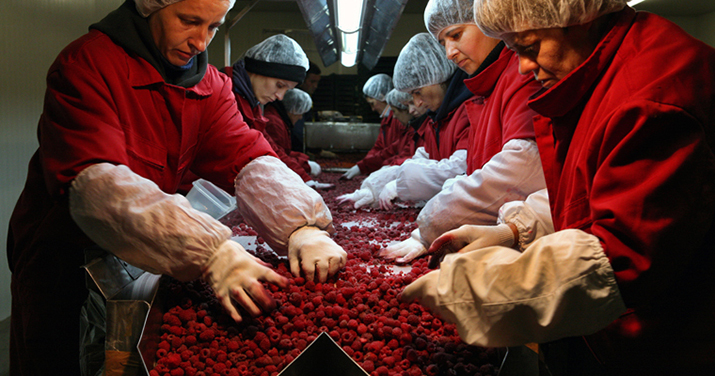WOMEN AGAINST WAR IN SREBRENICA
Over one hundred thousand dead, more than two million displaced, cities destroyed, and so many remains, including human. It takes a visionary to think about raspberries. But some people can find a reason for rebirth in almost anything. Of course, berries are not enough, you also need trust, intelligence, good will, and people capable of leaving behind suffering and pain to start a new dialogue. It’s daytime outdoors in Bratunac, Srebrenica. It’s the year 2003 and an agricultural cooperative is flourishing in the region where the Bosnian war was at its most brutal from 1992 to 1995. A place, on the western bank of the River Drina and on the border with Serbia, where women, once refugees or displaced persons, decided to start again, to return to life without asking themselves what ethnic group their neighbour belonged to, to talk, to confide in each other, to cry, to laugh, and to work to grow “raspberries for peace”.
Almost twenty years after the Zajedno-Insieme cooperative was founded, its jams and juices are also sold in Italy, but the road to recovery remains long. After all, Skender Hot and Rada Žarković – left alone at the helm of the company – chose to put their idea into practice in a region that was hit particularly hard by the Srebrenica tragedy, a city where Bosnian Serb troops killed and buried thousands of Bosnian Muslims (“Bosniaks) in mass graves in July 1995, an act that would later be named a genocide by the International War Crimes Tribunal in The Hague in 2004.
A multi-ethnic agricultural cooperative flourished in 2003, in regions hit particularly hard by the war in Bosnia.
Having escaped the tragedy, some women wanted to return to the region and accept the challenge put to them by Rada and Skender, two out-and-out pacifists, who have never stopped asking for an end to the fighting since the outbreak of the conflict in Croatia in 1991. It was through a network of anti-war associations in the Balkans that Rada encountered Italian civil society, consequently laying the foundations for the birth of Zajedno-Insieme, whose name refers to the strong relationships built over the past decade.
There were many difficulties to overcome. The bureaucracy took its toll, raising funds to purchase a facility proved complicated, the machinery for filtering and cleaning fruit was expensive, the cold chain was fragile, and transporting produce was a complex process. But the biggest obstacle of all was the lack of trust. Pain leaves deep marks on people and local administrations. Projects that encourage dialogue in regions that have suffered the great tragedies of genocide and war struggle to take off. Zajedno-Insieme managed to do so with raspberries. Peace is a match for almost anything.







